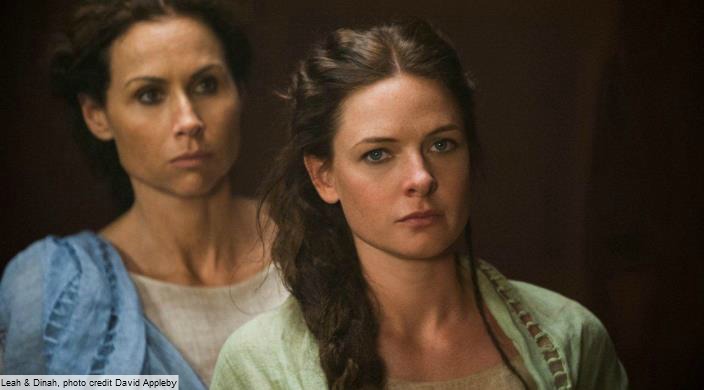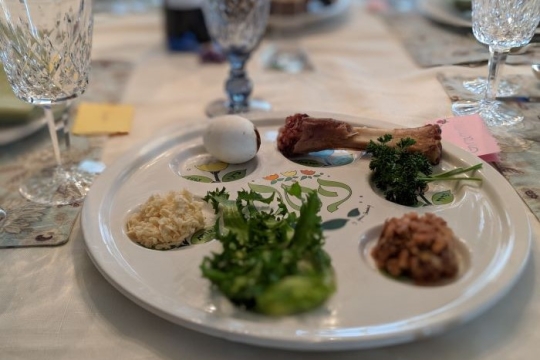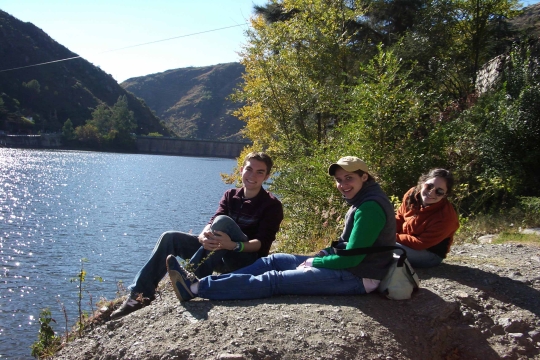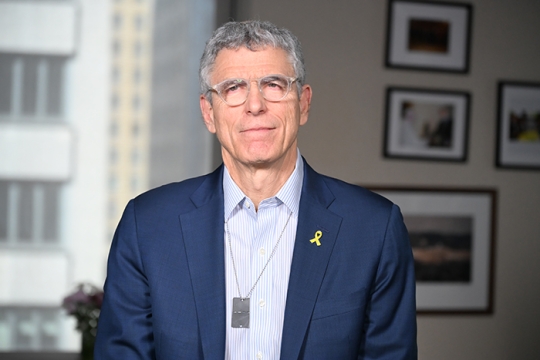The Red Tent: An Interview with Dinah

The following fictional conversation with Dinah, the biblical daughter of Jacob and Leah, is based on an interview with Anita Diamant, author of The Red Tent and a preview of the two-night miniseries by the same name airing this December 7 and 8 on Lifetime. The cast includes Rebecca Ferguson (The White Queen) as Dinah, Minnie Driver (Return to Zero, About a Boy) as Leah, Morena Baccarin (Homeland) as Rachel, Iain Glen (Game of Thrones) as Jacob, and Debra Winger (Terms of Endearment) as Rebecca.
I “sat down” with Dinah, the focus of the book and miniseries, to learn more about her story and hear how she feels about the upcoming TV event of which she is the star.
Aron Hirt-Manheimer for ReformJudaism.org: When Anita Diamant published The Red Tent in 1997, she said she wanted to give you a voice and a point of view. The novel has since become an international bestseller, your voice has been translated into 28 languages, and you will have a starring role in the upcoming TV adaptation. How do you feel about being in the limelight?
Dinah: I feel liberated. For more than three millennia, my story was little more than a footnote in an epic chapter of our people’s history centered on my father Jacob and my favored brother Joseph. My name was known only for my supposedly having been raped. Not a word was written in the Torah about how I was brought up by my four mothers, Leah, Rachel, Zilpah, and Bilhah; about my fears, desires, and dreams; about my becoming a skillful midwife. Anita rescued me from the dustbin of history.
Aron: You said “supposedly having been raped.” Is there any doubt?
Dinah: I think that the author of Genesis 34:2-4 was himself doubtful. First he writes that “Shechem son of Hamor…saw her, took her and lay with her by force.” Then he seems to contradict himself by stating: “Being strongly drawn to Dinah daughter of Jacob, and in love with the maiden, he spoke to the maiden tenderly. So Shechem said to his father Hamor, ‘Get me this girl as a wife.’” In her novel, Anita chose to portray Shechem (who she renamed Shalem) as having had honorable intentions, though most rabbis would probably disagree.
Aron: After the men of Shechem were circumcised in accordance with the agreement made between Jacob and Hamor to sanction your marriage to Shalem, your brothers murdered them all while they were in a weakened state. Where did that leave you?
Dinah: I was left without a husband and branded among my kin as a defiled woman. So in order to give me a life, a second act so to speak, Anita had Shalem’s aristocratic mother return to her native Egypt and take me along.
Aron: There is nothing in the Torah about your having been in Egypt. Does it trouble you that your life story has become the stuff of fiction, that contemporary writers can change the course of your life to suit their own purposes?
Dinah: Hasn’t it always been thus? I was introduced to the world in the Torah, a work of literature composed by men inspired by God. I believe that modern works of the human imagination, like sacred writings, can also be sources of truth and wisdom. What’s more, it is no sin to elaborate on or fill in the gaps of the biblical text; for centuries the rabbis have done just that in the form of midrashim.
Aron: Just for the record, Anita told me that her intent was to write a historical novel, not a modern midrash.
Dinah: Either way, The Red Tent has brought me healing and a sense of closure to my life. Had she not restored my dignity, I might have remained the archetypical rape victim in Western culture.
Related Posts

The Nevas Family's Enduring Passover Tradition: A Celebration of Freedom, Justice, and Community

Five Ways Adults Can Support Jewish Teen Mental Health


